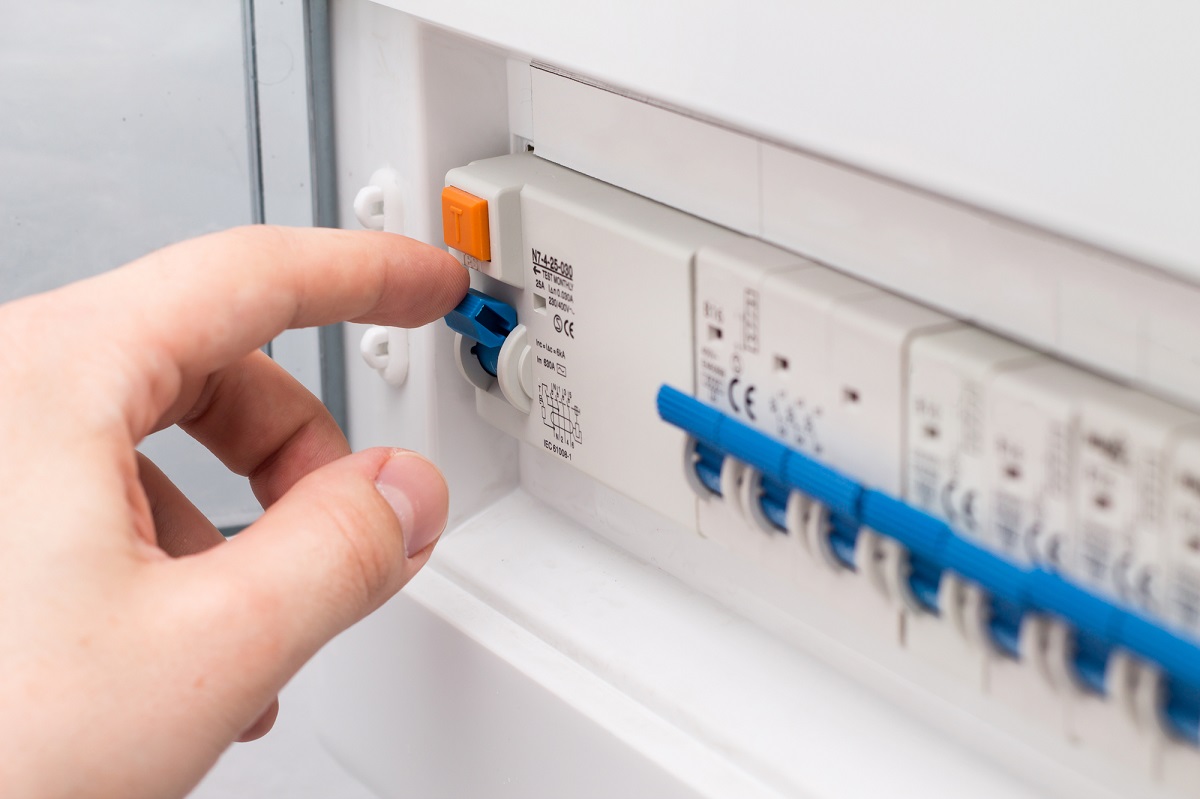

Articles
Why Does My AC Breaker Keep Tripping
Modified: November 2, 2024
Discover why your AC breaker keeps tripping and learn how to troubleshoot and fix the issue with helpful articles on HVAC maintenance and repair.
(Many of the links in this article redirect to a specific reviewed product. Your purchase of these products through affiliate links helps to generate commission for Storables.com, at no extra cost. Learn more)
Introduction
Welcome to the world of air conditioning! As a homeowner, it is frustrating when your AC breaker keeps tripping. Not only does it disrupt the comfort of your home, but it can also be a sign of underlying issues that need to be addressed. Understanding why your AC breaker keeps tripping is essential in ensuring the proper functioning and longevity of your cooling system.
Firstly, let’s understand what the AC breaker is and its role in your home’s electrical system. The AC breaker, also known as the circuit breaker, is a safety device that automatically shuts off power to the air conditioner in the event of an electrical overload or short circuit. It acts as a safeguard to protect your home from potential electrical damage.
There can be several reasons why your AC breaker keeps tripping. It could be due to an overloaded circuit, a short circuit, electrical faults, dirty air filters, faulty wiring, or even maintenance issues. In this article, we will explore each of these possibilities and provide troubleshooting steps to help you resolve the issue.
Before we dive into the specifics, it’s important to mention that if you are not comfortable working with electrical systems or if you suspect a serious issue, it’s best to consult a professional HVAC technician. They have the expertise and knowledge to diagnose and fix the problem safely.
Now, without further ado, let’s delve into the reasons why your AC breaker keeps tripping and how to address them.
Key Takeaways:
- Regular maintenance and prompt troubleshooting are essential for preventing AC breaker trips. Addressing issues such as overloaded circuits, dirty air filters, and faulty wiring can ensure the efficient and safe operation of your air conditioning system.
- Safety is paramount when dealing with electrical systems. If unsure, seek professional assistance to address potential causes of AC breaker trips, such as short circuits and electrical faults. Regular maintenance and timely repairs are key to maintaining a reliable cooling system.
Understanding the AC breaker
Before we explore the reasons why your AC breaker keeps tripping, it is important to have a basic understanding of how it works.
The AC breaker is a switch-like device located in your electrical panel or breaker box. It serves as an electrical safety measure to protect your home’s electrical system from overloading and potential hazards. The breaker is connected to your air conditioning unit and acts as a circuit interrupter. When an electrical overload or short circuit occurs, the breaker automatically shuts off power to the AC unit, cutting off the electricity supply and preventing further damage.
The breaker is designed to handle a predetermined amount of electrical current. This current rating is measured in amps (amperes), and it is crucial to ensure that the rating of the breaker matches the electrical capacity requirements of your air conditioner. Installing a breaker with a lower rating than the AC unit requires can result in frequent tripping and potential damage to the electrical system.
It is also important to note that an AC breaker is different from a regular household breaker. AC breakers are specifically designed to handle higher electrical loads associated with air conditioning units. Therefore, it is essential to have a clear understanding of the AC breaker’s properties and its compatibility with your air conditioner.
Now that we have a better grasp of the AC breaker’s purpose and functionality, let’s move on to explore the potential reasons why it keeps tripping.
Possible reasons for tripping
There can be several reasons why your AC breaker keeps tripping. Let’s take a closer look at each of these possibilities:
- Overloaded circuit: An overloaded circuit occurs when the electrical demand on the circuit exceeds its capacity. This often happens when multiple high-wattage appliances are connected to the same circuit. When the air conditioner kicks in and adds to the load, it can cause the breaker to trip. To prevent overloading, it’s important to distribute the electrical load evenly across different circuits or consider upgrading to a higher amp-rated breaker.
- Short circuit: A short circuit occurs when there is a direct electrical connection between the hot wire and the neutral wire or ground wire. This connection creates a surge of electrical current, leading to a tripped breaker. Short circuits can be caused by damaged wires, loose connections, or faulty components. Identifying and repairing the short circuit is crucial to prevent further damage and potential hazards.
- Electrical faults: Electrical faults, such as a damaged capacitor or compressor, can cause a significant increase in the electrical load and lead to a tripped breaker. These faults can occur due to wear and tear, power surges, or electrical malfunctions. It is important to have a professional HVAC technician inspect and repair any electrical faults to avoid further complications.
- Dirty air filters: A clogged or dirty air filter restricts the airflow to the air conditioning unit, causing it to work harder and draw more electrical power. This increased power demand can trip the breaker. Regularly cleaning or replacing the air filters can help maintain proper airflow and prevent unnecessary strain on the system.
- Faulty wiring: Faulty wiring can be a serious issue that not only causes the breaker to trip but also poses a fire hazard. Worn-out or damaged wiring can lead to short circuits or electrical arcing, resulting in the breaker shutting off to prevent further damage. It is crucial to have a qualified electrician inspect and repair any faulty wiring to ensure the safety of your home.
- Maintenance issues: Lack of regular maintenance can contribute to various problems that can lead to a tripped breaker. Accumulated dirt, debris, or dust on the condenser coils, a malfunctioning fan motor, or a refrigerant leak can all increase the workload on the AC unit and cause the breaker to trip. Scheduling regular maintenance with a professional HVAC technician can help address these issues and keep your system running smoothly.
Now that we have explored the potential reasons behind the tripping of your AC breaker, it’s time to discuss the troubleshooting steps to address and resolve these issues. These steps will help you identify the specific cause and take appropriate action to restore the proper operation of your air conditioning system.
Overloaded circuit
An overloaded circuit is a common cause of the AC breaker tripping. It occurs when the electrical demand on the circuit exceeds its capacity. When multiple high-wattage appliances or devices are connected to the same circuit, the additional load from the air conditioner can push the electrical system beyond its limits, causing the breaker to trip as a safety measure.
To prevent an overloaded circuit, it’s important to distribute the electrical load evenly across different circuits in your home. Avoid connecting too many power-hungry devices to a single circuit. If you notice that the breaker consistently trips when the air conditioner is running, try unplugging or turning off other high-wattage appliances or devices on the same circuit. This will help reduce the overall load and prevent the breaker from tripping.
If you find that the breaker continues to trip even after redistributing the load, it may be necessary to consider upgrading to a higher amp-rated breaker. This will increase the capacity of the circuit and allow it to handle the additional electrical demand of the air conditioner without tripping. It is recommended to consult a licensed electrician to assess your electrical system and determine the appropriate breaker size for your specific needs.
Additionally, it’s important to note that using extension cords or power strips can also contribute to an overloaded circuit. These devices are not designed to handle high electrical loads over an extended period of time. If you are using an extension cord or power strip to connect your air conditioner, make sure it is properly rated for the appliance’s wattage and avoid using multiple extension cords or power strips in series.
Regularly inspecting the electrical system in your home and being mindful of your power usage can help prevent an overloaded circuit and ensure your air conditioner operates smoothly without tripping the breaker. Taking these steps will not only improve the efficiency of your electrical system but also help extend the lifespan of your air conditioning unit.
Short circuit
A short circuit is a common electrical problem that can cause the AC breaker to trip. It occurs when there is a direct electrical connection between the hot wire (carrying current) and the neutral wire (returning current) or the ground wire. This connection allows a surge of electrical current to flow, triggering the breaker to shut off and prevent further damage or potential hazards.
Short circuits can be caused by various factors, including damaged wires, loose connections, or faulty components within the electrical system. For example, if the insulation around a wire is worn out or damaged, it may come into contact with other wires or conductive materials, leading to a short circuit.
Identifying and resolving short circuits can be challenging and potentially dangerous, so it’s important to exercise caution. Here are some steps you can take to address a potential short circuit:
- Shut off power: Before attempting any troubleshooting steps, it is essential to turn off the power to the affected circuit. Locate the breaker that corresponds to the air conditioning unit and switch it to the “off” position.
- Inspect visible wiring: Carefully examine the visible wiring connected to the air conditioner for any signs of damage, such as frayed insulation, exposed wires, or loose connections. If you notice any issues, it is advisable to consult a professional electrician to repair or replace the damaged wiring.
- Check switches and outlets: Inspect any switches or outlets in the vicinity of the air conditioner for signs of damage or loose connections. Faulty switches or outlets can also cause short circuits. If you suspect a problem, it is best to have a licensed electrician inspect and repair them.
- Unplug appliances or devices: Disconnect any appliances or devices that are plugged in near the air conditioner. Sometimes, a faulty or malfunctioning device can cause a short circuit when it is turned on or plugged in.
- Call a professional: If you are unable to identify the source of the short circuit or if you feel uncomfortable working with electrical systems, it is strongly recommended to contact a qualified electrician. They have the expertise and tools necessary to safely diagnose and repair the issue.
Resolving a short circuit requires professional assistance in most cases. It is crucial to prioritize your safety and the safety of your home by entrusting these repairs to a trained and experienced electrician. By addressing short circuits promptly, you can prevent further damage to your electrical system and ensure the continued smooth operation of your air conditioning unit.
Read more: Why Does My Water Pump Breaker Keep Tripping
Electrical faults
Electrical faults can be a significant cause of the AC breaker tripping. These faults occur when there is a malfunction or damage to the electrical components within the air conditioning system. When these faults occur, they can result in a sudden increase in the electrical load, causing the breaker to trip as a safety measure. It is important to address electrical faults promptly to prevent further damage and potential hazards.
Here are some common electrical faults that can cause the AC breaker to trip:
- Capacitor issues: The capacitor is a crucial component of the air conditioning system that helps start and regulate the flow of electrical current. If the capacitor becomes faulty or damaged, it can cause the electrical load to fluctuate, leading to a tripped breaker. A professional HVAC technician can assess the capacitor and replace it if necessary.
- Compressor problems: The compressor is responsible for compressing the refrigerant and circulating it through the air conditioning system. If the compressor develops a fault or stops working correctly, it can cause the electrical load to spike, resulting in a tripped breaker. Repairing or replacing the compressor should be done by a qualified technician.
- Power surges: Power surges are sudden, brief increases in electrical voltage that can overload the electrical system. They can be caused by lightning strikes, utility grid fluctuations, or electrical malfunctions. Power surges can damage sensitive components within the air conditioner and trigger the breaker to trip. Installing surge protectors or contacting an electrician to assess your home’s electrical system can help protect against power surges.
- Electrical malfunction: Various electrical malfunctions, such as loose connections, damaged wires, or faulty switches, can lead to an increase in the electrical load and cause the breaker to trip. These malfunctions can occur due to wear and tear, improper installation, or insufficient maintenance. It is important to have a professional electrician inspect the electrical system and address any potential malfunctions.
If you suspect that your AC breaker is tripping due to electrical faults, it is recommended to contact a qualified HVAC technician or electrician. They have the expertise to diagnose and repair electrical issues within your air conditioning system safely. Attempting to fix electrical faults without proper knowledge and experience can be dangerous and may result in further damage to the system or compromise your safety.
By addressing electrical faults promptly, you can ensure the proper functioning of your air conditioner, prevent unnecessary breakdowns, and enhance the overall efficiency and longevity of the system.
Dirty air filters
One of the common reasons why your AC breaker keeps tripping is dirty air filters. Air filters play a crucial role in maintaining the quality of indoor air and the efficiency of your air conditioning system. Over time, these filters can become clogged with dust, dirt, pollen, and other airborne particles, obstructing the airflow and causing the system to work harder to maintain the desired temperature.
When the air conditioner is operating with dirty filters, it can lead to an increase in energy consumption and higher electrical demand. This increased power demand can overload the circuit and cause the breaker to trip as a safety mechanism. Additionally, a clogged air filter reduces the airflow, causing the evaporator coils to freeze up, which can further strain the system and result in the breaker tripping.
To prevent the AC breaker from tripping due to dirty air filters, it is necessary to clean or replace them regularly. Here’s how you can maintain clean air filters:
- Check the filters: Regularly inspect the air filters to determine if they need cleaning or replacement. Different factors, such as the season, the presence of pets, and the indoor air quality, can impact how quickly the filters become dirty.
- Clean reusable filters: If your air conditioner uses reusable filters, follow the manufacturer’s instructions for cleaning them. This usually involves rinsing with water or vacuuming off the accumulated dust and debris.
- Replace disposable filters: If your air conditioner uses disposable filters, it is recommended to replace them according to the manufacturer’s guidelines or at least every three months. Consider using high-quality filters for better efficiency and improved air quality.
- Maintain a clean environment: Prevent excessive dust and debris from entering your home by keeping your living spaces clean. Regular dusting, vacuuming, and minimizing the introduction of dirt can help reduce the strain on your air filters.
- Schedule regular maintenance: Apart from regular filter cleaning or replacement, it is important to schedule routine maintenance for your air conditioning system with a professional HVAC technician. They can perform a comprehensive inspection, clean the coils, check for any issues, and ensure that the system is operating at its optimal efficiency.
By maintaining clean air filters, you can improve the airflow, prevent the evaporator coils from freezing, and reduce the strain on your air conditioning system. This, in turn, will help prevent the AC breaker from tripping and ensure that your cooling system operates smoothly and efficiently.
Faulty wiring
Faulty wiring is a serious issue that can cause the AC breaker to trip and pose a potential fire hazard. Over time, wiring can become worn out, damaged, or improperly installed, leading to various electrical problems. When it comes to your air conditioning system, faulty wiring can be a common cause of breaker tripping.
Here are some common signs of faulty wiring:
- Frequent breaker tripping: If your AC breaker frequently trips, especially when the air conditioner turns on, it may be a sign of faulty wiring. Faulty wiring can cause an electrical overload, leading to the breaker shutting off to prevent further damage.
- Burning smell or charred marks: If you notice a burning smell or charred marks around electrical outlets or switches, it could indicate faulty wiring. This could be a result of overheating due to loose connections or damaged wires.
- Intermittent power loss: If your air conditioning system or other electrical devices experience intermittent power loss or flickering lights, it may be due to faulty wiring connections.
- Sparks or electrical shocks: If you see sparks when plugging in or unplugging devices or experience electrical shocks when touching switches or outlets, it is a clear sign of faulty wiring and should be addressed immediately.
If you suspect faulty wiring as the cause of your AC breaker tripping, it is essential to take action promptly. However, working with electrical systems can be dangerous, so it is best to leave the inspection and repair to a professional electrician.
A qualified electrician will be able to assess the state of your wiring, identify any faults, and make the necessary repairs or replacements. They will ensure that the wiring is correctly installed and meets the required safety standards. This not only addresses the issue of the tripped breaker but also ensures the safety of your home and reduces the risk of electrical hazards.
Remember, dealing with faulty wiring requires the expertise and knowledge of a professional electrician. Avoid attempting repairs yourself, as it can lead to further damage or personal injury. Always prioritize your safety and contact a licensed electrician for any wiring issues related to your air conditioning system.
Maintenance issues
Maintenance issues can often contribute to the tripping of your AC breaker. Neglecting regular maintenance can lead to various problems within your air conditioning system, which can result in increased power demand and cause the breaker to trip. By addressing these maintenance issues, you can prevent unnecessary breakdowns and maintain the efficiency of your cooling system.
Here are some common maintenance issues that can lead to a tripped AC breaker:
- Condenser coil buildup: Over time, dust, dirt, and debris can accumulate on the condenser coils of your air conditioning unit. This buildup restricts airflow and reduces the system’s efficiency, causing it to work harder and draw more electrical power. Regularly cleaning the condenser coils can help maintain proper airflow and prevent unnecessary strain on the system.
- Faulty fan motor: The fan motor in your air conditioner is responsible for circulating the air within the system. If the fan motor malfunctions or is not working properly, it can cause the unit to overheat and trip the breaker. Regular maintenance includes inspecting and lubricating the fan motor to ensure its smooth operation.
- Refrigerant leaks: Refrigerant is a vital component in the cooling process of your air conditioner. If there is a refrigerant leak, it can cause the system to work inefficiently and potentially trip the breaker. Regular maintenance involves checking for refrigerant leaks and recharging the system if needed.
- Electrical connections: Loose or improperly connected electrical wires within the air conditioning system can cause an increase in electrical resistance, leading to excessive heat buildup and a tripped breaker. It is important to regularly inspect and tighten these connections during maintenance sessions.
To prevent maintenance issues from causing your AC breaker to trip, it is recommended to schedule regular maintenance with a professional HVAC technician. During these maintenance visits, the technician will thoroughly inspect and clean your air conditioning system, address any issues that may lead to a tripped breaker, and ensure its optimal performance.
In addition to professional maintenance, there are some maintenance tasks you can perform on your own to keep your air conditioning system in good condition. These include regularly cleaning or replacing air filters, keeping the area around the outdoor unit free from debris, and checking and clearing any obstructions in the system’s air vents.
By staying proactive with maintenance and promptly addressing any issues, you can prevent unnecessary tripping of the AC breaker, extend the lifespan of your cooling system, and enjoy consistent comfort throughout the year.
Regularly clean or replace your air filters to prevent dust and debris from causing your AC to overheat and trip the breaker.
Troubleshooting steps
If your AC breaker keeps tripping, it’s important to perform some troubleshooting steps to identify the specific cause and take appropriate action. Here are some steps you can follow:
- Resetting the breaker: Start by turning the AC breaker off and then back on. Sometimes, a temporary power surge or a minor electrical glitch can trip the breaker. Resetting it may help resolve the issue.
- Checking for an overloaded circuit: Ensure that the circuit connected to your air conditioner is not overloaded. Disconnect or turn off other high-wattage appliances on the same circuit and see if the breaker trips again when the AC is running. If the problem persists, move on to the next troubleshooting step.
- Inspecting for short circuits: Examine the visible wiring, switches, and outlets around your air conditioning system for any signs of damage, loose connections, or charred marks. Please note that working with electrical systems can be dangerous, so exercise caution and consider consulting a professional electrician for a thorough inspection.
- Addressing electrical faults: If you suspect electrical faults within the system, such as a faulty capacitor or compressor, it’s best to contact a professional HVAC technician for a proper diagnosis and repair. They have the tools and expertise to safely handle electrical components.
- Cleaning or replacing air filters: Check the air filters in your air conditioner and clean or replace them if they are dirty. Clogged filters restrict airflow and can cause the system to work harder, potentially tripping the breaker.
- Fixing faulty wiring: If you suspect faulty wiring as the cause of the breaker tripping, it is crucial to contact a licensed electrician to inspect and repair the wiring. Working with electrical systems requires specialized knowledge and training.
- Regular AC maintenance: Schedule regular maintenance with a professional HVAC technician to keep your air conditioning system in optimal condition. They will be able to identify any potential issues, clean and tune up the system, and ensure its efficient operation.
Remember, safety should be the top priority when dealing with electrical systems. If you feel uncomfortable or unsure about performing any of the troubleshooting steps, it’s best to consult a professional. They can ensure that the necessary repairs are carried out correctly, minimizing risks and preserving the longevity of your air conditioning system.
By following these troubleshooting steps, you can gain insight into the cause of the AC breaker tripping and take the appropriate actions to resolve the issue. Whether it’s a simple reset, cleaning the filters, or seeking professional help, these steps will help you restore the proper functioning of your air conditioning system and maintain a comfortable and cool environment in your home.
Resetting the breaker
One of the first troubleshooting steps you can take when your AC breaker keeps tripping is to reset the breaker. Resetting the breaker is a simple process that can help resolve temporary power surges or minor electrical glitches. Here’s how you can do it:
- Locate the breaker panel: The breaker panel, also known as the electrical panel or breaker box, is usually located in the basement, utility room, garage, or other accessible area of your home. It contains a series of switches or circuit breakers that control the electrical supply to different parts of your house.
- Identify the AC breaker: Look for the breaker that corresponds to your air conditioning unit. It is typically labeled as “AC,” “AC Unit,” or something similar. The labels may vary depending on the specific electrical panel and its organization.
- Turn off the breaker: Flip the AC breaker switch to the “off” position. This will cut off the power supply to the air conditioning unit. It’s important to ensure that the switch is fully in the “off” position.
- Wait for a few moments: After turning off the breaker, wait for a few minutes. This allows any residual electrical current to dissipate and ensures a full reset of the breaker.
- Turn on the breaker: Now, flip the AC breaker switch back to the “on” position. You should hear a click as the breaker resets and restores the electrical supply to the air conditioner.
After resetting the breaker, monitor your AC unit to see if it continues to trip the breaker. If the breaker no longer trips, it may have been a temporary issue or minor electrical glitch that resetting the breaker resolved. However, if the breaker trips again soon after resetting, there may be an underlying issue that requires further investigation and professional assistance.
It’s important to note that resetting the breaker is a temporary solution and should not be seen as a permanent fix. If the breaker continues to trip regularly, it is advisable to consult a professional HVAC technician or electrician. They can diagnose the cause of the tripping and take appropriate steps to address the issue.
Remember, electrical systems can be dangerous, and if you are unsure or uncomfortable dealing with breakers or any electrical components, it’s always best to seek professional help. They have the expertise and knowledge to handle the situation safely and effectively.
By following these steps to reset the breaker, you can troubleshoot and potentially resolve minor issues with your AC system, restoring its proper functioning and preventing unnecessary trips of the breaker.
Checking for an overloaded circuit
An overloaded circuit is a common cause of a tripped AC breaker. When the electrical demand on a circuit exceeds its capacity, the breaker trips to prevent overheating and potential electrical hazards. To check if an overloaded circuit is the culprit behind your tripping AC breaker, follow these steps:
- Identify the circuit: Determine which circuit is connected to your air conditioning unit. Refer to the breaker panel and look for the switch labeled for the AC or HVAC system.
- Inspect the devices connected: Take note of the other devices or appliances connected to the same circuit. Look for high-wattage devices such as refrigerators, washing machines, or air compressors that can contribute to an overload.
- Calculate the total load: Determine the total electrical load on the circuit by adding up the individual wattages of all the devices connected. You can find the wattage information on the devices’ labels or user manuals. Ensure that the total load is well below the circuit’s amp rating. Most residential circuits are rated for 15 or 20 amps.
- Disconnect devices if necessary: If the total load exceeds the circuit’s capacity, consider disconnecting some devices or shifting them to a different circuit. Unplug or turn off power-hungry equipment temporarily to distribute the load more evenly.
- Reset the breaker: After adjusting the load on the circuit, reset the AC breaker by turning it off and then turning it back on. This ensures that the breaker is fully reset and ready to handle the adjusted load.
- Observe and repeat: Monitor the circuit and AC unit to see if the breaker continues to trip. If the tripping stops, it indicates that the overloaded circuit was causing the issue. However, if the breaker still trips, there may be other underlying problems.
It’s important to note that constantly overloading a circuit can cause damage to the electrical system and potentially lead to electrical fires. If you consistently experience overloaded circuits, it is advisable to consult a licensed electrician to assess your home’s electrical capacity and consider upgrading the circuit or redistributing the load.
Regularly inspecting and balancing the electrical load across circuits in your home can help prevent the AC breaker from tripping due to overloading. Distributing the load effectively ensures a stable and efficient electrical system, allowing your air conditioning unit to operate without strain and reducing the risk of tripped breakers.
Remember, if you are unsure about your electrical system or are uncomfortable working with circuit breakers and electrical components, it is always recommended to seek the assistance of a qualified electrician. They have the knowledge and expertise to handle electrical issues safely and effectively.
By following these steps to check for an overloaded circuit, you can identify and address any issues that may be causing your AC breaker to trip and restore the proper functioning of your air conditioning system.
Inspecting for short circuits
Short circuits are a common electrical problem that can cause your AC breaker to trip. A short circuit occurs when there is a direct electrical connection between the hot wire and the neutral wire or ground wire. To inspect for short circuits and potentially identify the cause of your tripped AC breaker, follow these steps:
- Safety first: Before inspecting for short circuits, make sure to turn off the power to the AC unit by switching off the corresponding breaker in the electrical panel. This ensures your safety during the inspection process.
- Visually examine the wiring: Start by visually examining the wiring connections near the air conditioning unit. Look for any obvious signs of damage, such as frayed or exposed wires, loose connections, or wires that appear burnt or melted. If you spot any issues, it is crucial to call a professional electrician to address the problem.
- Check outlets and switches: Inspect the outlets and switches near the AC unit for any signs of damage, such as burn marks or melted plastic. Loose connections or damaged outlets/switches can potentially cause short circuits. If you notice any problems, consult an electrician to fix or replace them.
- Use a multimeter: If you have experience using a multimeter, you can test the electrical continuity of the wiring to identify any potential short circuits. Set the multimeter to the continuity or resistance mode and carefully test the wiring connections. It is crucial to follow proper safety precautions and refer to the multimeter manual for accurate usage instructions.
- Consult a professional: If you are uncertain about inspecting for short circuits or lack the necessary expertise, it is highly recommended to consult a professional electrician. They have the necessary knowledge and tools to safely diagnose and repair wiring issues that may be causing short circuits and tripping your AC breaker.
It’s important to note that dealing with electrical systems can be dangerous, and if you are not comfortable or experienced in working with electrical components, it is best to seek the help of a professional electrician. They can ensure the job is done safely and effectively.
By inspecting for short circuits, you can potentially identify any wiring issues that may be causing your AC breaker to trip. Addressing these issues promptly and correctly is vital for the safety of your electrical system and the proper functioning of your air conditioning unit.
Addressing electrical faults
Electrical faults within your air conditioning system can cause an increase in electrical load and lead to a tripped AC breaker. Addressing these faults is crucial to prevent further damage and ensure the safe operation of your air conditioner. Here are steps you can take to address electrical faults:
- Turn off the power: Before addressing any electrical faults, it is important to turn off the power to the AC unit by switching off the corresponding breaker in the electrical panel. This ensures your safety during the repair process.
- Inspect visible components: Carefully inspect the visible electrical components within the air conditioning unit. Look for signs of damage, such as burnt or melted wires, frayed insulation, or loose connections. If you notice any issues, it’s recommended to contact a professional HVAC technician or electrician to address and repair the faulty components.
- Check capacitors: Capacitors are essential electrical components in your air conditioning system, responsible for starting and regulating the flow of electrical current. If capacitors are faulty or damaged, they can cause the breaker to trip. A professional technician can test the capacitors and replace them if needed.
- Inspect the compressor: The compressor is another critical component that can lead to electrical faults. A malfunctioning or damaged compressor can cause the system’s electrical load to increase and trigger the breaker to trip. An HVAC technician can assess the condition of the compressor and determine if repairs or replacements are necessary.
- Address wiring issues: Faulty or damaged wiring can cause electrical faults and increase the risk of short circuits, leading to breaker tripping. It is crucial to have a licensed electrician inspect the wiring in your air conditioner and make any necessary repairs or replacements.
- Call a professional: It is highly recommended to consult a professional HVAC technician or electrician for addressing electrical faults. They have the expertise, experience, and proper tools to identify, diagnose, and safely repair the electrical issues within your air conditioning system.
It’s important to prioritize your safety when dealing with electrical faults. Working with electricity can be dangerous, and it requires specialized knowledge and experience. Therefore, it is best to leave electrical repairs to qualified professionals who can ensure that the job is done safely and accurately.
By promptly addressing electrical faults, you can prevent further damage to your air conditioning system, ensure its proper functioning, and avoid potential hazards associated with faulty electrical components.
Cleaning or replacing air filters
A common reason for an AC breaker to trip is dirty air filters. Over time, air filters in your air conditioning system can become clogged with dust, dirt, pollen, and other airborne particles. These dirty filters restrict airflow, causing your AC unit to work harder and draw more electrical power. This increased power demand can overload the circuit and result in a tripped breaker.
To address this issue, it is important to regularly clean or replace your air filters. Here’s how you can maintain clean air filters:
- Inspect the air filters: Begin by inspecting the air filters in your air conditioner. Locate the filter compartment, which is usually near the return air duct or the air handler. Remove the filters and visually inspect them for dirt, dust, and debris buildup.
- Clean reusable filters: If your air conditioner uses reusable filters, you can clean them to remove accumulated dirt. Rinse the filters with water or use a vacuum cleaner to gently remove the dirt and debris. Allow the filters to dry completely before reinstalling them.
- Replace disposable filters: If your air conditioner uses disposable filters, it is best to replace them according to the manufacturer’s guidelines. The frequency of replacement may vary depending on factors such as the filter type, indoor air quality, and usage. Typically, filters should be replaced every one to three months.
- Choose the right filter: When replacing air filters, ensure you choose the correct size and type for your air conditioning system. Different filters offer varying degrees of filtration and efficiency. High-efficiency filters can trap smaller particles, but they may need more frequent replacement. Consult the manufacturer’s recommendations or seek professional advice to select the appropriate filter for your air conditioner.
- Regularly schedule maintenance: To maintain clean air filters and ensure overall HVAC system efficiency, it is highly recommended to schedule regular maintenance with a professional HVAC technician. During the maintenance visit, they will inspect, clean, and address any issues with your air conditioning system, including the filters.
Keeping your air filters clean is crucial for maintaining proper airflow and preventing unnecessary strain on your AC system. In addition to improved system performance, clean air filters also contribute to better indoor air quality by trapping airborne particles and allergens.
Regularly cleaning or replacing your air filters not only helps prevent the AC breaker from tripping, but it also prolongs the lifespan of your HVAC system, improves its energy efficiency, and ensures a comfortable and healthy indoor environment for you and your family.
Fixing faulty wiring
Faulty wiring can be a serious issue that leads to an AC breaker tripping. Worn-out, damaged, or improperly installed wiring can cause electrical problems and potentially pose a fire hazard. If you suspect faulty wiring as the cause of your breaker tripping, it is crucial to address and fix the issue promptly. However, working with electrical systems can be dangerous, so it’s important to prioritize your safety and consider hiring a licensed electrician to handle this task. Here’s how a professional electrician can fix faulty wiring:
- Assessment and inspection: The electrician will perform a thorough assessment of your electrical system to identify any faulty wiring. They will inspect the wiring connections, outlets, switches, and other electrical components for signs of damage, such as frayed insulation, exposed wires, loose connections, or charred marks.
- Isolation of the problem area: Once the faulty wiring is identified, the electrician will isolate the problem area by cutting off power to the affected circuit. This is done by switching off the corresponding breaker in the electrical panel.
- Repair or replacement: The electrician will then proceed with repairing or replacing the faulty wiring. This may involve various tasks such as replacing damaged wires, fixing loose connections, installing new wiring where necessary, or upgrading outdated electrical components.
- Adherence to electrical codes: A professional electrician will ensure that all repairs and replacements are done in accordance with local electrical codes and safety regulations. They possess the knowledge and expertise to perform the work safely and effectively.
- Verification and testing: After the repairs are made, the electrician will verify the integrity of the wiring by conducting thorough testing. This may involve using specialized tools such as multimeters to check for proper voltage, testing for continuity, and ensuring all connections are secure.
- Final inspection and restoration of power: Once the repairs are complete and the electrical system is deemed safe, the electrician will conduct a final inspection. They will ensure that everything is in order before restoring power to the circuit. They may also provide recommendations for future maintenance or upgrades to further enhance electrical safety.
Fixing faulty wiring requires the expertise and knowledge of a licensed electrician. Attempting to repair wiring issues without the necessary skills can lead to further damage, unsafe conditions, or even personal injury. It is crucial to hire a professional electrician to handle faulty wiring problems and ensure the safety and proper functioning of your electrical system.
By addressing faulty wiring, you can prevent AC breaker trips and reduce the risk of electrical hazards. Hiring a professional electrician ensures that the repairs are done correctly, provides peace of mind, and maintains the safety and efficiency of your electrical system for the long term.
Regular AC Maintenance
Regular maintenance is key to ensuring the optimal performance and longevity of your air conditioning system. By conducting routine maintenance, you can identify and address any potential issues before they develop into major problems that may cause your AC breaker to trip. Here are some important aspects of regular AC maintenance:
- Professional inspections: Schedule regular maintenance visits with a professional HVAC technician. They will conduct a comprehensive inspection of your air conditioning system, checking for any signs of wear, damage, or malfunction. These experts have the knowledge and experience to identify potential issues that can lead to a tripped breaker.
- Cleaning and lubrication: Dust, dirt, and debris can accumulate in your AC unit, hindering its performance. During maintenance visits, the technician will clean the condenser coils, evaporator coils, and other components to remove any dirt or debris. They will also lubricate moving parts to ensure smooth operation and optimal efficiency.
- Refrigerant levels: The refrigerant in your AC system plays a crucial role in cooling the air. HVAC technicians will check the refrigerant levels and recharge the system if necessary. Improper refrigerant levels can cause the compressor to work harder, potentially leading to a tripped breaker.
- Electrical component inspection: The technician will inspect the electrical components of your AC system, including wiring, capacitors, and relays, to ensure they are in good condition. They will check for loose connections, signs of damage, or potential electrical faults that can lead to breaker tripping.
- Air filter maintenance: Regularly cleaning or replacing air filters is crucial for maintaining proper airflow and preventing strain on your air conditioning system. HVAC technicians can guide you on the appropriate schedule for cleaning or replacing filters, depending on factors such as the type of filter and indoor air quality.
- Thermostat calibration: The calibration of your thermostat affects the accuracy of temperature control in your home. During maintenance, technicians can calibrate your thermostat to ensure it is functioning properly, preventing unnecessary energy consumption and strain on your AC system.
- Ductwork inspection: Leaks or blockages in your ductwork can restrict airflow and cause your AC system to work harder. Technicians can inspect the ductwork for any issues and address them accordingly, ensuring efficient cooling and minimizing strain on the system.
Regular AC maintenance is essential not only for preventing AC breaker trips but also for enhancing energy efficiency and extending the lifespan of your air conditioning system. By investing in regular maintenance, you can enjoy reliable cooling performance, improved indoor air quality, and reduced energy costs.
In addition to professional maintenance, it’s important to stay proactive with basic maintenance tasks. These tasks include regularly cleaning or replacing air filters, keeping the area around the outdoor unit clear of debris, and ensuring proper airflow by keeping vents unobstructed. By incorporating these tasks into your routine, you can optimize the performance of your AC system.
Remember, regular AC maintenance should be performed by qualified HVAC technicians who have the expertise and knowledge to handle the complexities of your air conditioning system. By entrusting maintenance to professionals, you can have peace of mind knowing that your AC system is in good hands and operating at its best.
Read more: Why Breakers Trip
Conclusion
Dealing with a tripping AC breaker can be frustrating and inconvenient. However, understanding the reasons behind the tripping and taking appropriate action can help you restore the proper functioning of your air conditioning system and prevent future disruptions.
In this article, we have explored several common causes of a tripped AC breaker, including overloaded circuits, short circuits, electrical faults, dirty air filters, faulty wiring, and maintenance issues. Each of these factors can contribute to the tripping and compromise the performance and efficiency of your air conditioner.
By following troubleshooting steps, such as resetting the breaker, checking for an overloaded circuit, inspecting for short circuits, addressing electrical faults, cleaning or replacing air filters, fixing faulty wiring, and scheduling regular AC maintenance, you can identify and resolve issues before they escalate.
It is important to prioritize your safety when dealing with electrical systems. If you are unsure or uncomfortable handling electrical components, it is always recommended to seek the assistance of a licensed electrician or professional HVAC technician. They have the expertise and knowledge to handle electrical repairs and maintenance safely and effectively.
Maintaining clean air filters, distributing electrical load evenly, and addressing maintenance issues contribute to the efficiency and longevity of your air conditioning system. Regular maintenance, performed by professionals, ensures the optimal performance of your AC system and reduces the risk of future tripped breakers.
Ultimately, by taking proactive measures and addressing any underlying issues, you can enjoy consistent comfort, improved energy efficiency, and a reliable cooling system in your home.
Remember, when it comes to AC breakers and electrical systems, safety and professional assistance are paramount. Prioritize regular maintenance and timely repairs to keep your air conditioning system in top shape, ensuring a comfortable and cool environment for years to come.
Frequently Asked Questions about Why Does My AC Breaker Keep Tripping
Was this page helpful?
At Storables.com, we guarantee accurate and reliable information. Our content, validated by Expert Board Contributors, is crafted following stringent Editorial Policies. We're committed to providing you with well-researched, expert-backed insights for all your informational needs.
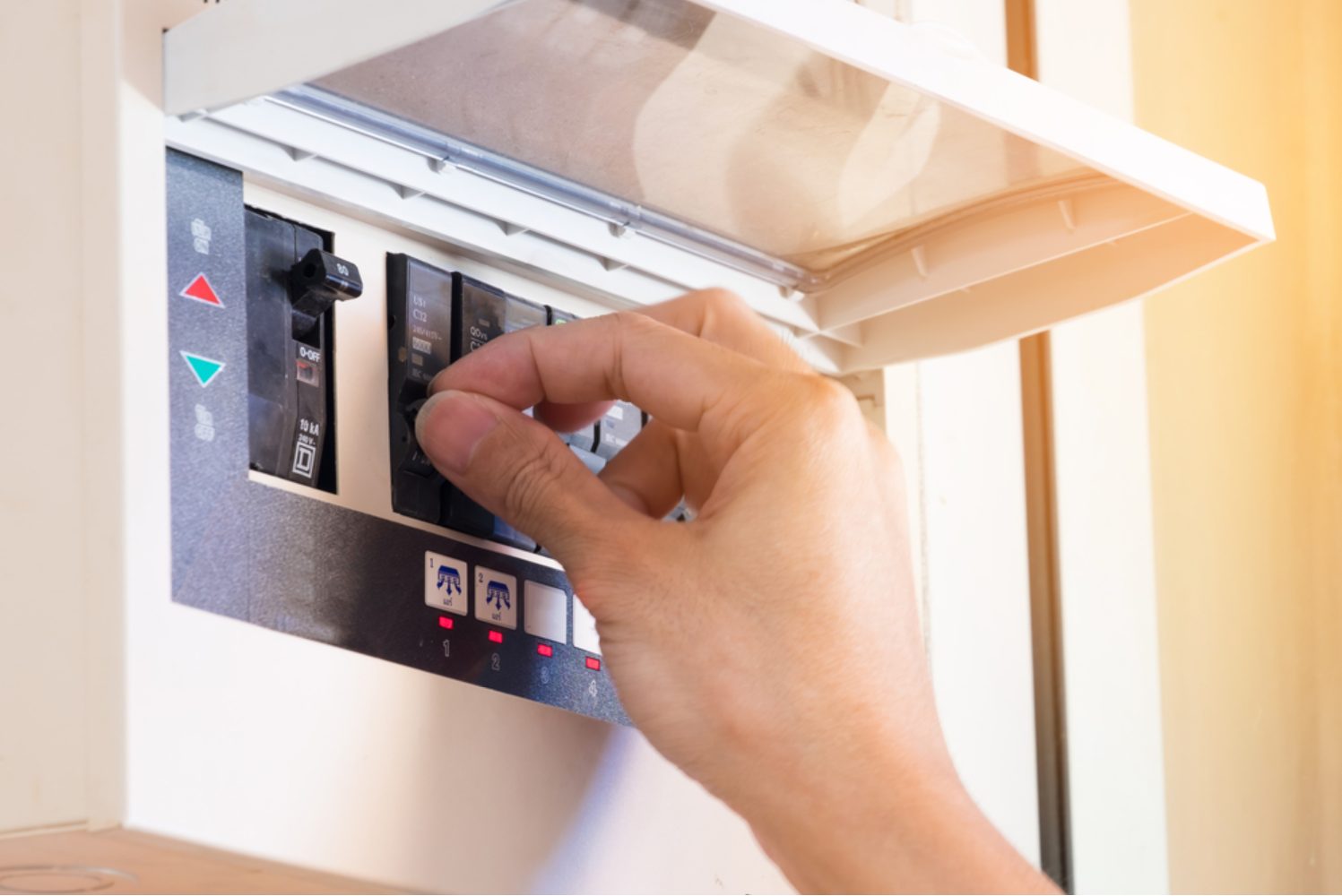
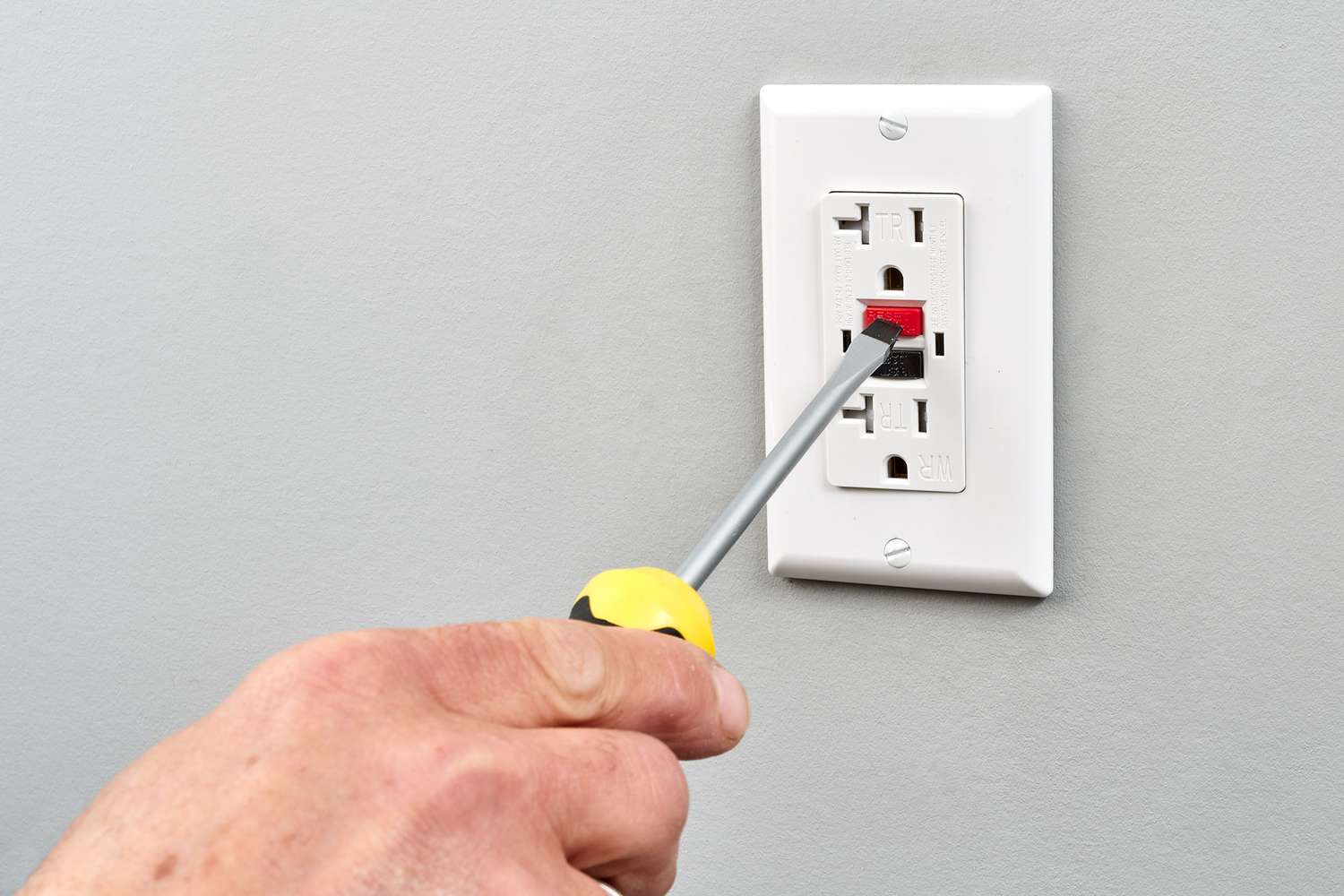
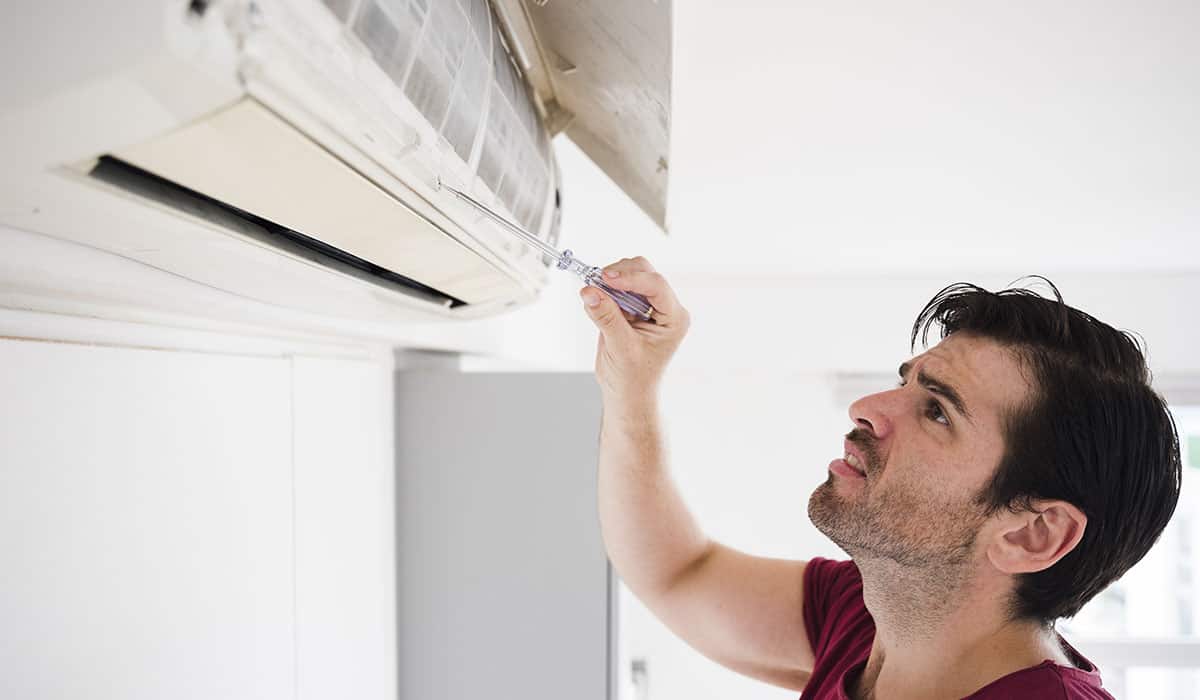
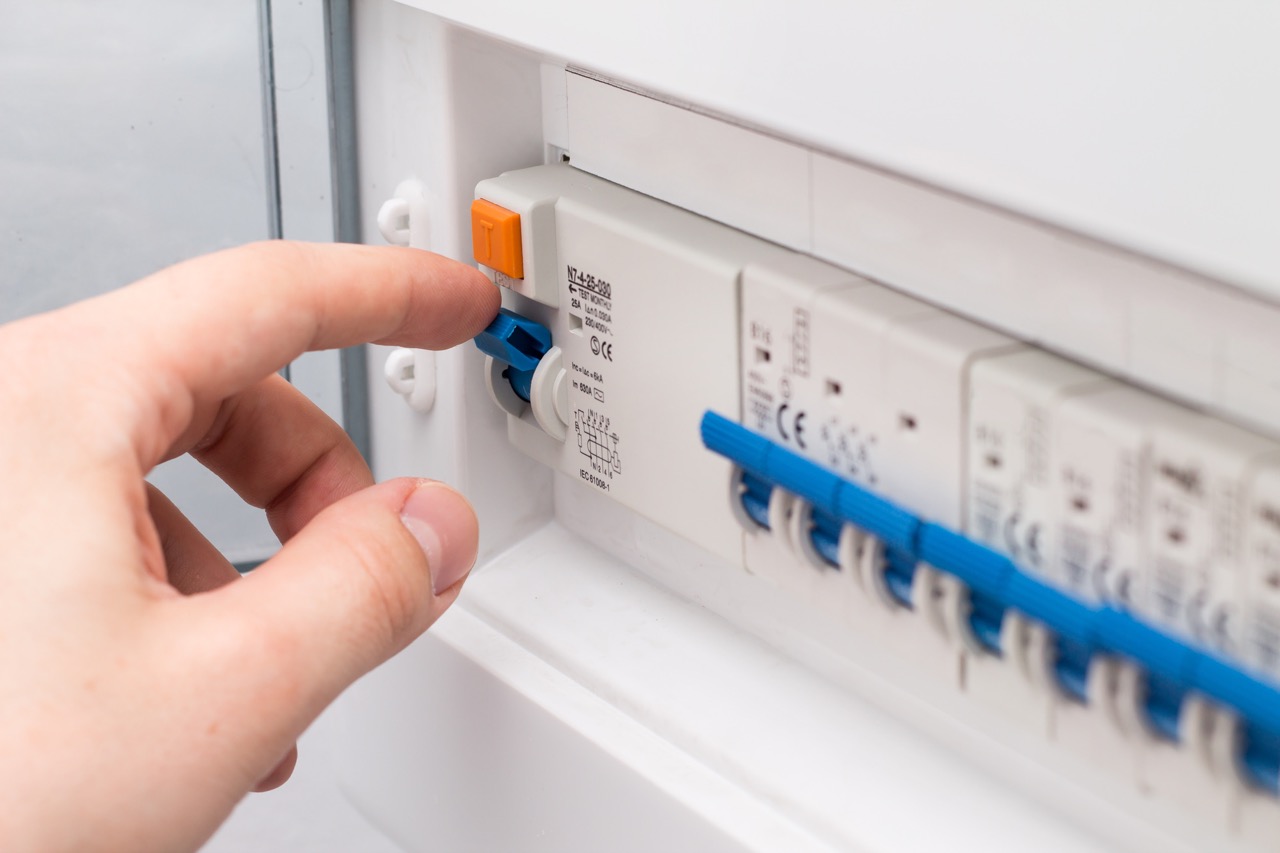
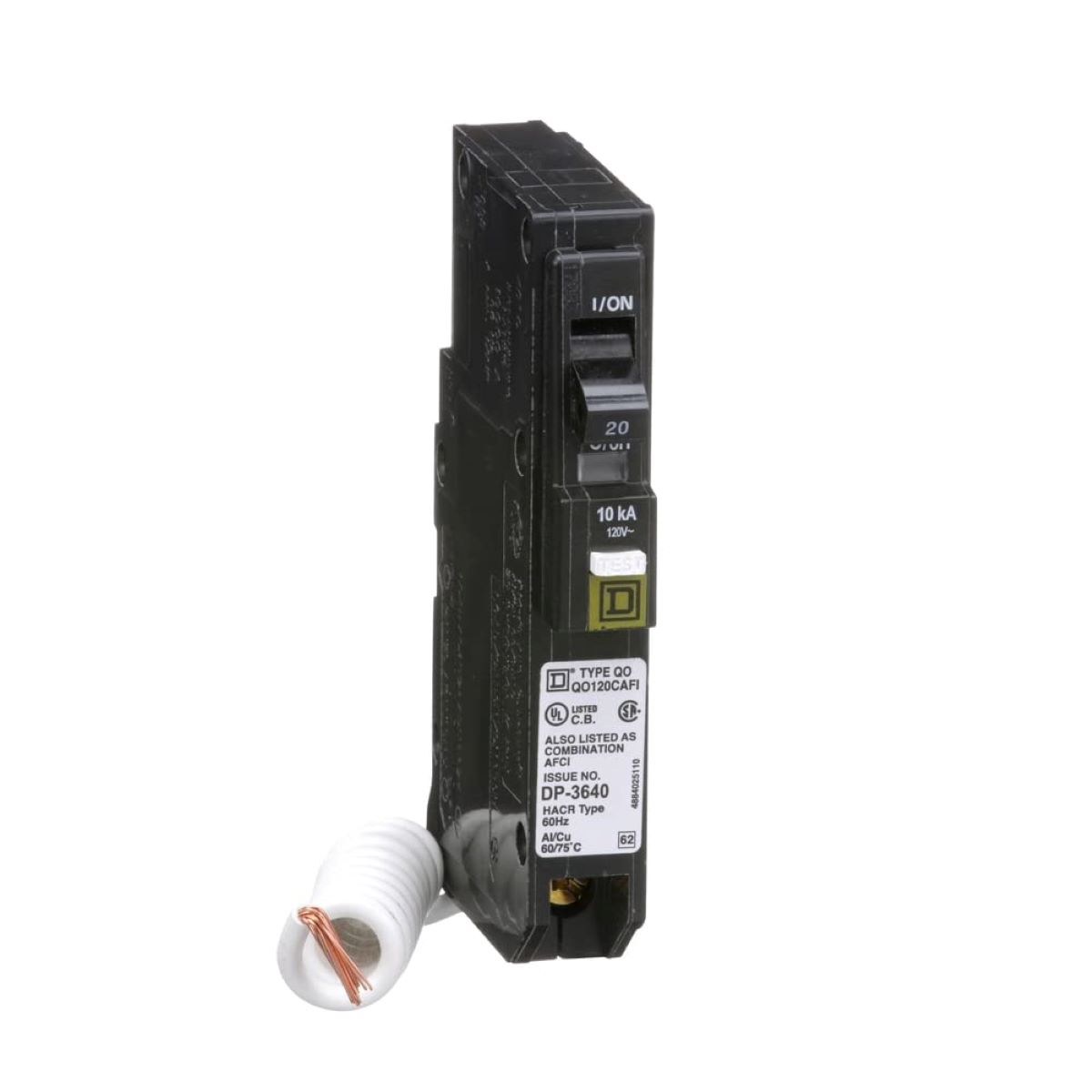
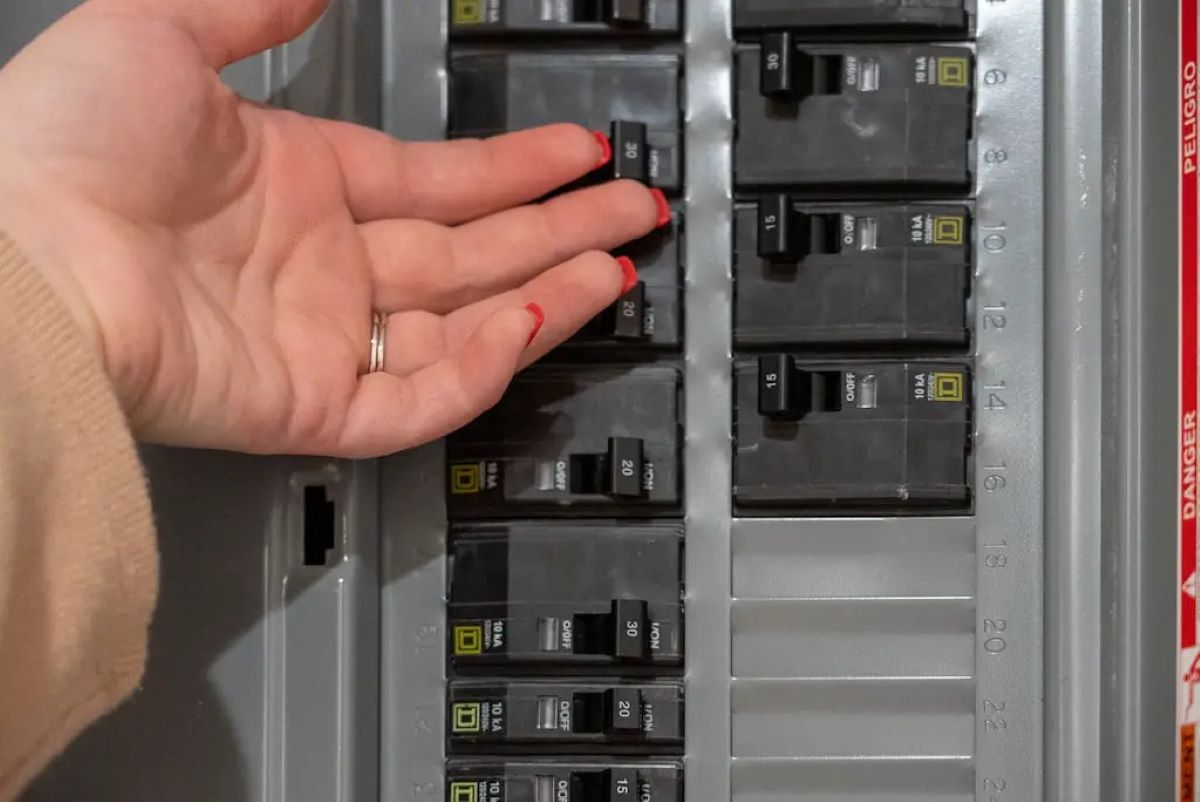
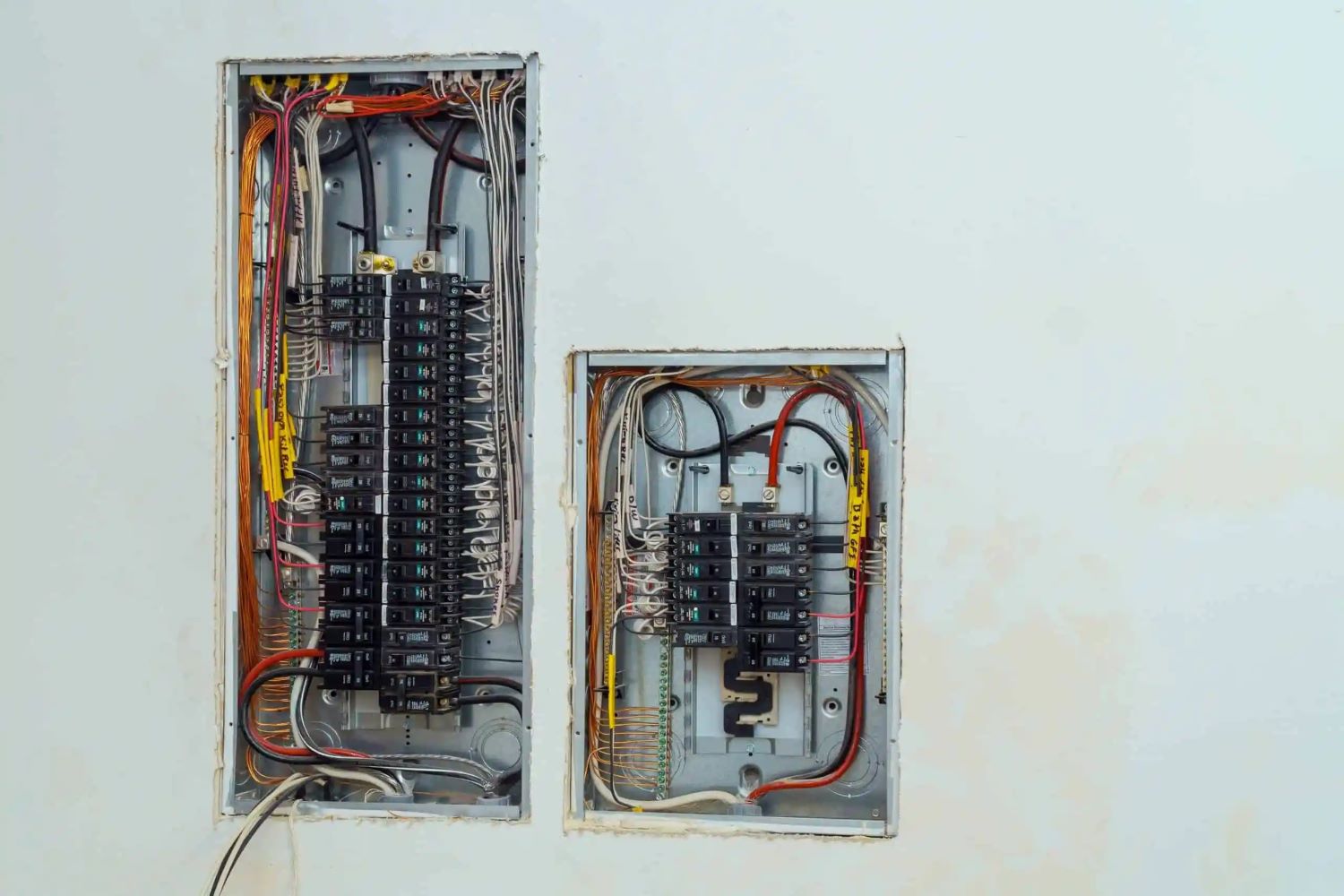
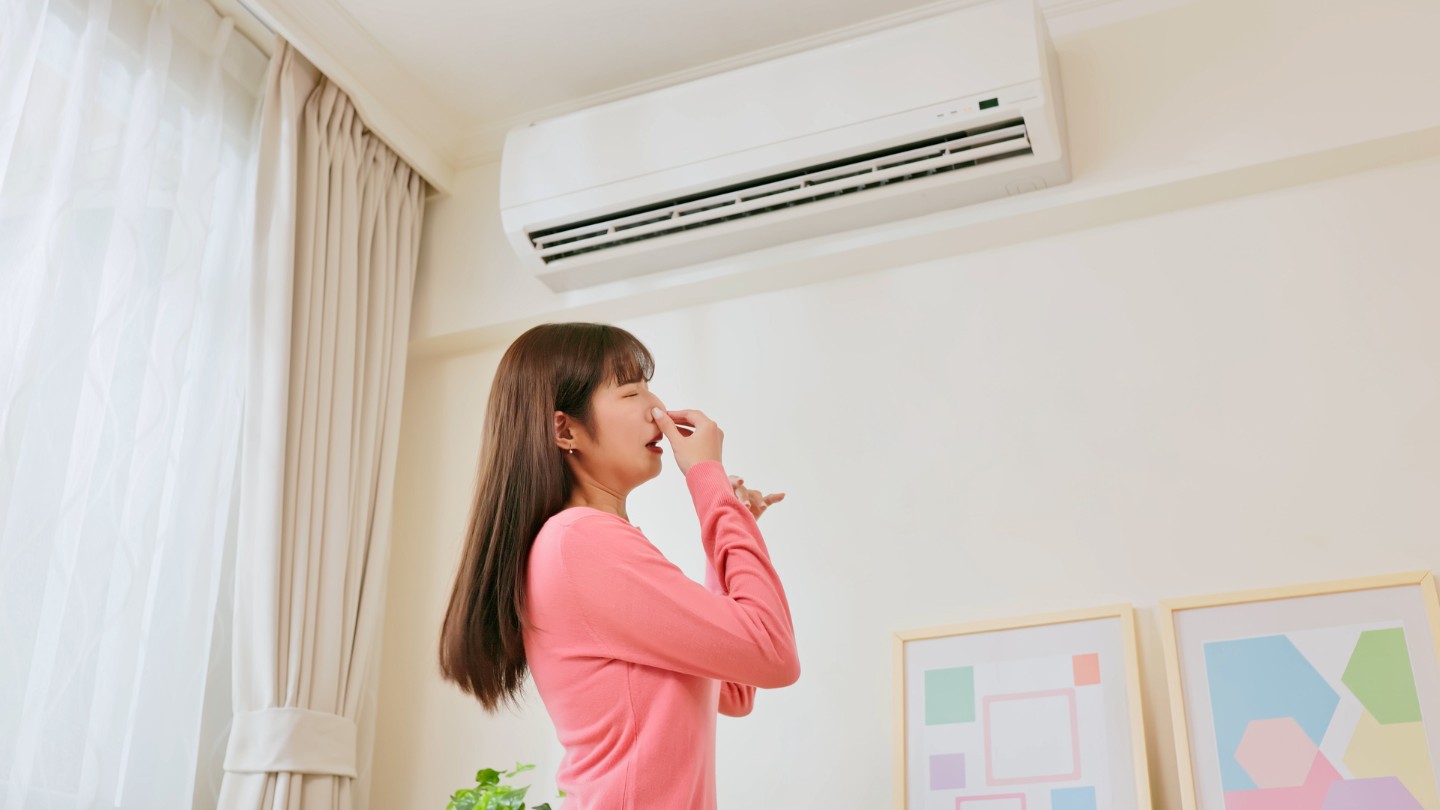
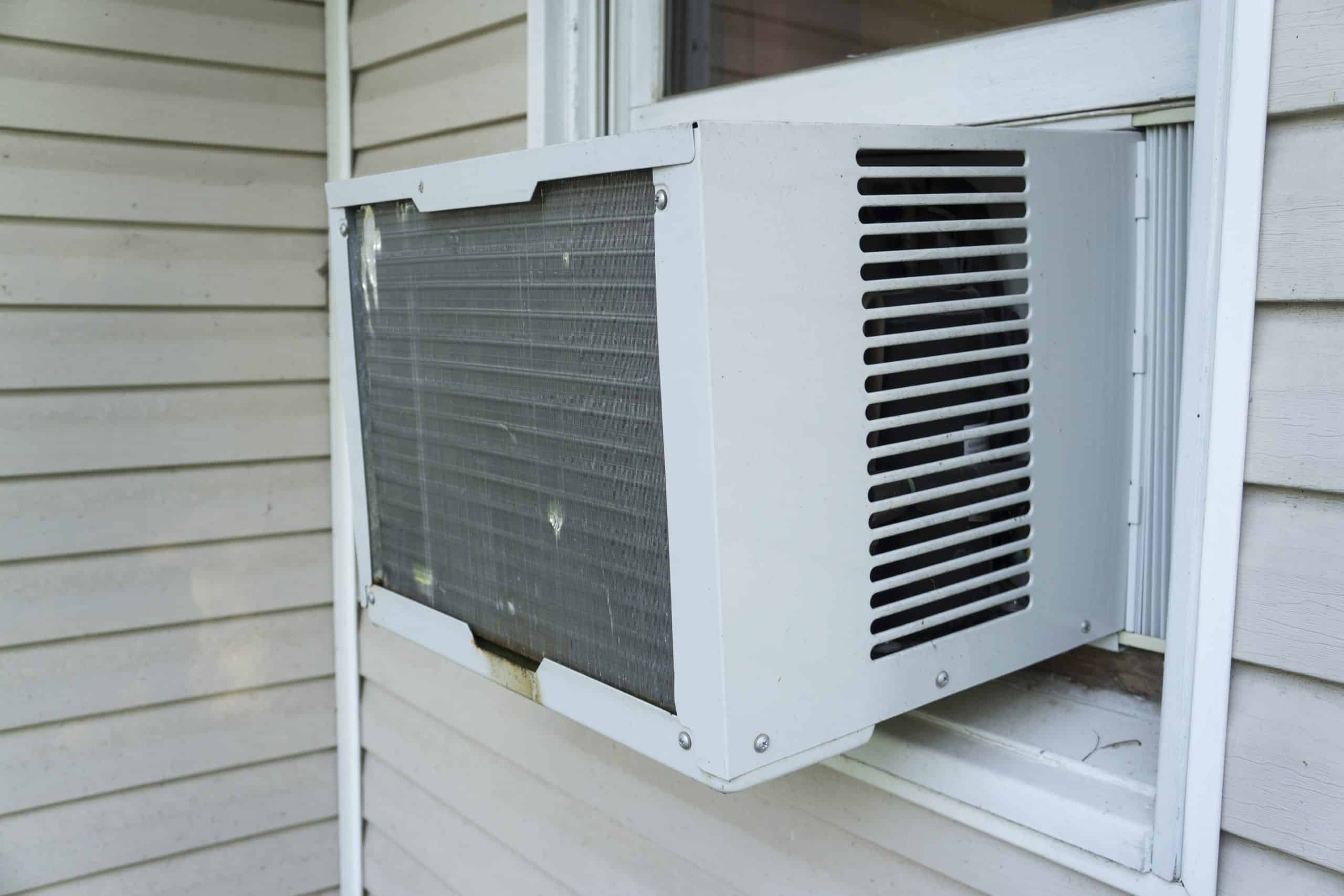
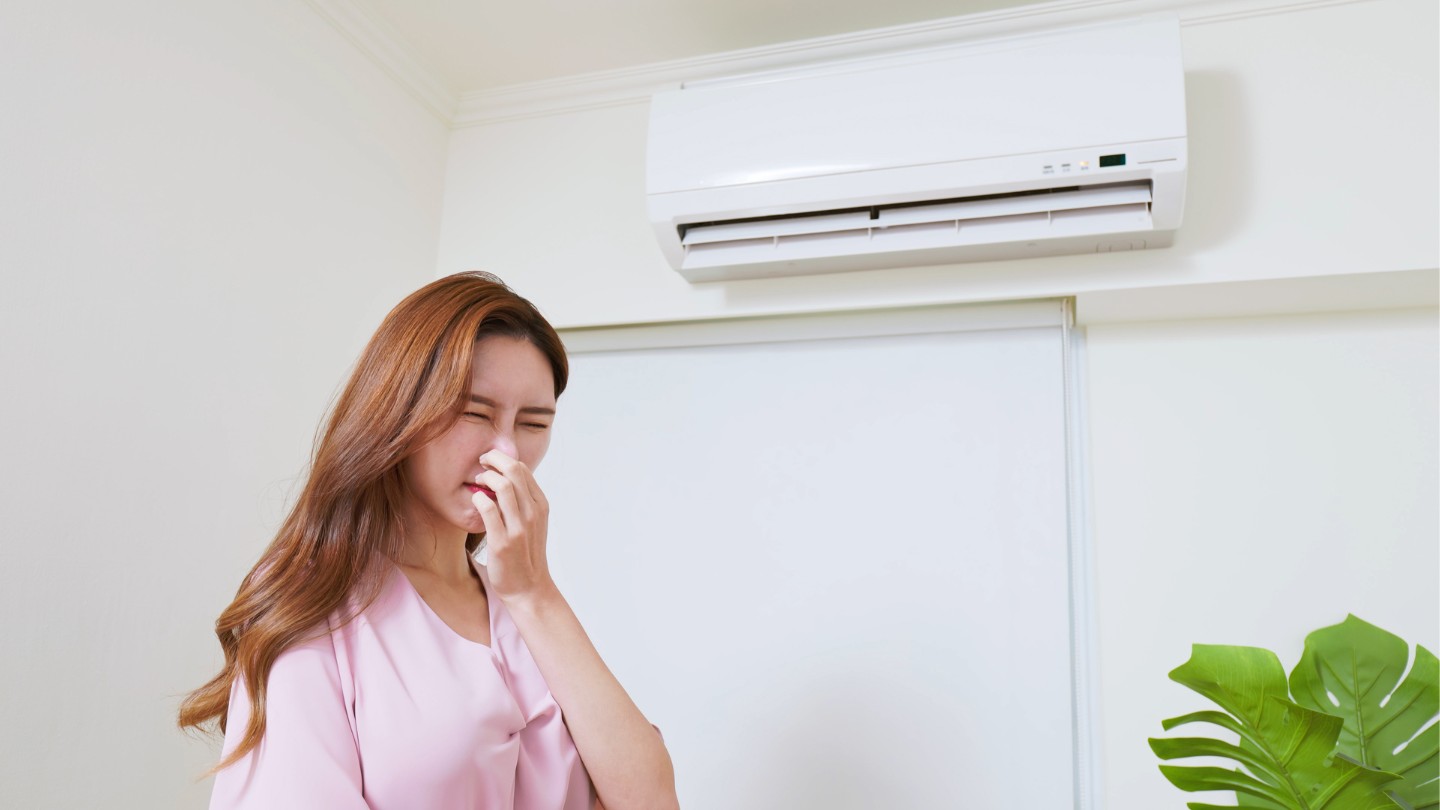
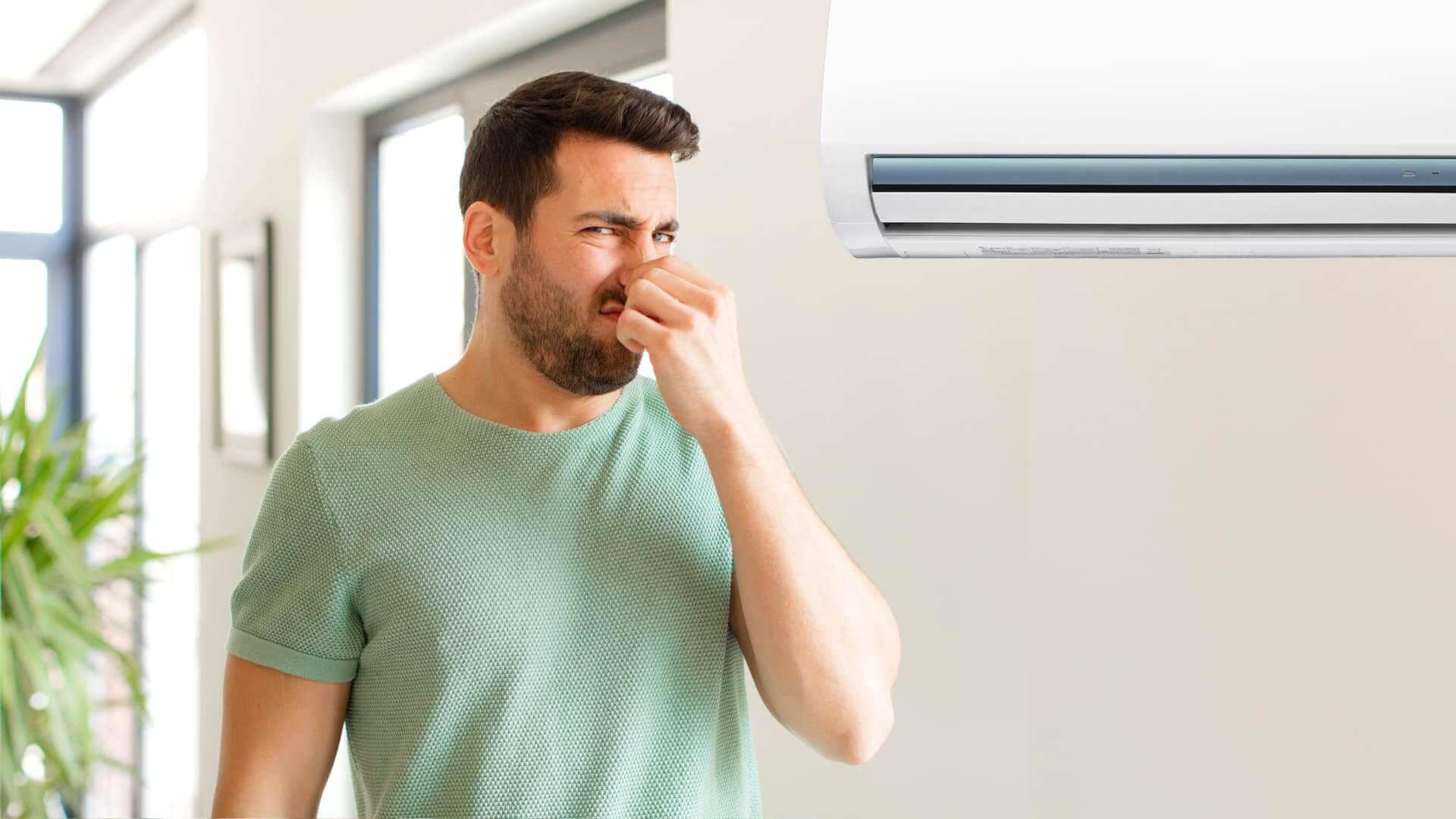

0 thoughts on “Why Does My AC Breaker Keep Tripping”